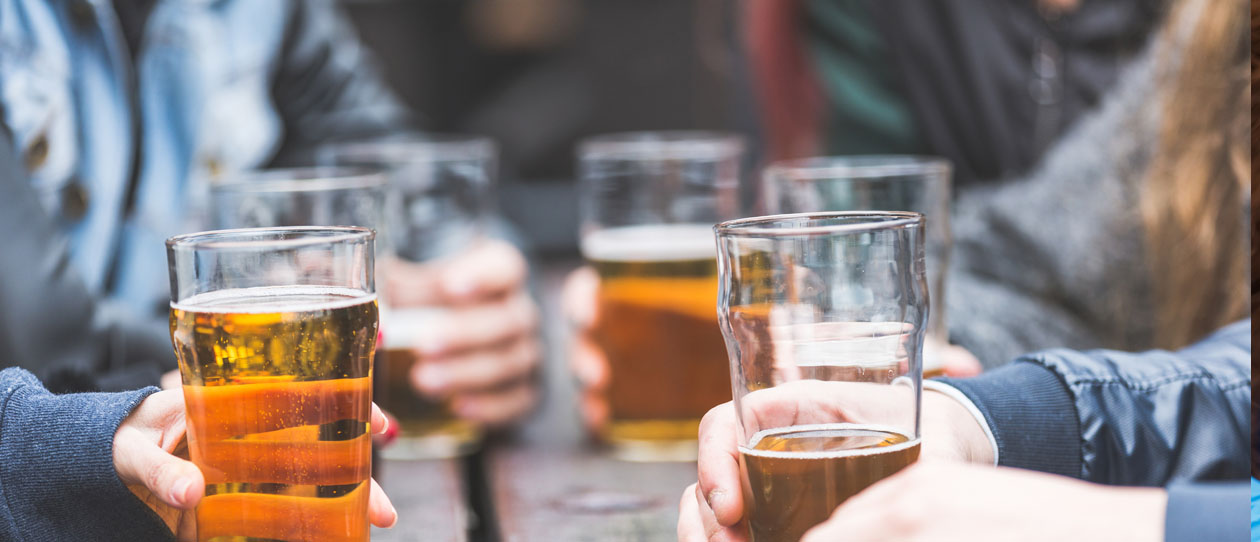Alcohol ExcessOverindulgence
The energy content of alcohol is rather high (1 g alcohol = 7.1 cal = 29.7 kJ) The capacity to metabolise alcohol varies widely. A healthy person metabolises alcohol on average at 5-710 g (one standard drink)/hour. More than two standard drinks a day for women, or more than four drinks a day for men, should be a cue for intervention to cut down on alcohol.... these are new guidelines that GP's now recommend.

Symptoms
Overconsumption of alcohol may cause sweating and flushing, talking too much and showing off, impairment of judgement, emotional instability, confusion and disorientation, memory loss and uncoordinated movement. In addition, large amounts of alcohol irritate the lining of the stomach. Alcohol also shuts off the production of anti-diuretic hormone in the body causing excessive urination that leads to dehydration. Dehydration and stomach irritation are thought to be partly responsible for the “hangover” symptoms of headache and nausea.
Alcohol induces reactive hypoglycaemia that produces a craving for food, particularly those foods that quickly elevate blood sugar.
As a source of energy, alcohol has a high potential to displace other essential nutrients. Malabsorption of nearly all nutrients may develop as a result of mucosal dysfunction, liver insufficiency and pancreatic insufficiency.
Causes
Excessive consumption of alcohol.
Natural Therapies
The body eliminates toxins either by directly neutralising them or by excreting them. Toxins that the body is unable to eliminate build up in the tissues, typically in the fat stores and bone. The liver, intestines, and kidneys are the primary organs of detoxification and elimination.
Bio ACE Plus: antioxidant vitamins are important in protecting the liver from damage as well as aiding the detoxification mechanisms. There are several vitamins, minerals and trace minerals that are critical in the elimination of heavy metals and other toxic compounds from the body.
B vitamins and the lipotropic agents: (choline, betaine, methionine, vitamin B6, folic acid and vitamin B12) are useful as they promote the flow of fat and bile to and from the liver.
Milk Thistle: hepatoprotective and supports regeneration of liver cells. Also used as a detoxifying agent and aids normal liver function.
Life Style Factors
Allow adequate rest to promote recuperation Gentle exercise
Remedies
Drink plenty of water to prevent dehydration Don't drink more than you need - only you know what your body can take
